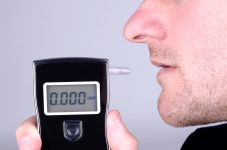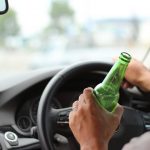Reducing Repeat Drink Driving: Mandatory Interlock Licences for High Range and Repeat Drink Driving are on the Horizon

Drink driving is a prevalent and concerning safety issue on our roads.
The statistics and research for drink driving overwhelmingly point to it’s dangers – including the risk of property damage, serious injury and death on our roads.
Despite countless media campaigns against drink driving, it remains the most prevalent criminal offence dealt with by the courts and a major road safety issue.
Drink driving related fatalities amount to about 15% of the annual road toll.
In 2013 alone, alcohol was a factor in 50 deaths and 987 injuries on our roads.
From the period of July 2013 to March 2014, the total number of drink driving cases finalised in court was 8613.
During the same period, 1211 repeat offenders were dealt with by the Courts.
The NSW Government is introducing strict new laws targeting serious and repeat drink driving offenders, which are scheduled to come into effect on 1 February 2015.
The proposed law requires courts to order those convicted of high range drink driving and repeat offenders to:
- Complete a minimum licence disqualification period, and then
- Complete a minimum of 12 months with an ‘interlock device’ fitted to their vehicle.
The courts may grant exemptions, but only in exceptional circumstances.
The ‘alcohol interlock program’ has been around for many years, and it allows drivers in certain circumstances to have their period of disqualification reduced as long as they agree to drive thereafter for a certain period of time with an alcohol interlock device fitted to their vehicle.
An interlock device is an electronic breath testing device which is installed by approved installers and linked to a vehicle’s ignition system.
It is essentially a breath testing machine attached to the vehicle.
Once installed, all drivers of the vehicle must provide a breath sample which the interlock device will analyse for alcohol before the vehicle will start.
The device will also conduct random breath tests during the journey and can detect measures to interfere with or trick the device such as using an air pump or other mechanism.
If a breath test returns a positive alcohol result, the vehicle’s ignition system will be disabled and the positive reading recorded in the device.
Importantly, the interlock device has a zero blood alcohol tolerance.
This means that drivers subject to the interlock device won’t be permitted to drive after having a drink over a meal, or one or two drinks at the pub before driving home.
Alcohol may even register on the device the ‘morning after’ an evening where a large number of drinks may have been consumed.
This zero tolerance blood alcohol reading is aimed at ensuring that certain offenders e are completely sober when getting behind the wheel of a car.
As stated, the proposed new laws will target serious drink driving offenders, such as those charged with High Range PCA and Refuse Breath Test (which carries the same penalties as High Range PCA) as well as repeat offenders who have committed a second drink driving offence within a five year period.
For those people, participation in the program will be mandatory.
For those who refuse or can’t afford to have a device fitted, the law will impose a licence disqualification for at least five years from the date of conviction.
This will increase the likelihood that serious and repeat drink driving offenders participate in the Mandatory Alcohol Interlock Program.
How will the new laws work?
An interlock order by the court will include a period of total driver licence disqualification (eg 12 months).
When this disqualification is completed, it will be followed by a minimum 12 month interlock period.
Longer interlock period may apply for more serious offences.
Other aspects of the proposed new rules are that:
- All licence classes are included: car, motorcycle and heavy vehicles. This is in contrast to the current Interlock Licence laws which currently only apply to cars.
- The participant will arrange for an approved provider to install and maintain an interlock in their vehicle. Interlock providers will be accessible across NSW.
- The interlock records every breath test. This information is collected during compulsory regular inspections by the interlock provider. The data is monitored by the Roads and Maritime Service.
- The program is user pays. These costs are in addition to fines imposed by courts, which can often be quite hefty.
Concessions are available to holders of select concession cards.
Some additional financial assistance may also be available, but only in exceptional circumstances. Interlock licence devices however are not cheap.
Installation and removal fees apply as do monthly fees.
To install an Interlock Device using an approved installer costs approximately $165.00 for a standard vehicle.
There is a removal fee of approximately $80.00 as well as a monthly fee of $150.00.
The cost of the interlock device may cause significant hardship to individuals and families due to not only its set up costs, but also the monthly fees required to be paid.
Roads and Maritime manages participants during the interlock program. Depending on performance, it may:
- Grant an unrestricted or provisional driver licence to the person, if participation is completed satisfactorily, or
- Require an alcohol-related Fitness to Drive medical assessment, if participants cannot show that they can safely separate drinking and driving, and may extend the participant’s time in the interlock program.
Additionally, the proposed new laws will state that:
- Unrestricted licence holders who exceed their demerit points limit twice in five years must re-sit and pass the Driver Knowledge Test. This is the test that all driver licence applicants must pass before they get their learner licence. They must also complete a driver education course.
- Provisional licence holders who twice exceed their demerit points limit must also re-sit and pass the Driver Knowledge Test.
- Drivers who commit a second or subsequent drink driving offence in five years must pass an appropriate knowledge test before they can get their licence back.
An administrative interstate interlock driver licence transfer program will be established for interlock licence holders from other States and Territories who move into NSW so that they can drive using an interlock in NSW.
This is due to the fact that all states and territories have laws which recognise and enforce disqualification periods imposed in other states.
Interlock program participants must show that they do not attempt to drink and drive during the program.
Data will be regularly collected from interlocks and reviewed by RMS.
The RMS may send program participants who continue to attempt to drink and drive a letter recommending that they visit a doctor to discuss their drinking behaviour.
For the last six months of the program, participants who cannot show that they can safely separate drinking and driving may be referred for a Fitness to Drive Assessment.
This may result in Roads and Maritime extending their time in the interlock program.
It is my view that the proposed laws are to be largely commended for their attempts to engage in preventative measure to offending behaviour rather than the all too often ‘commonsense’ approaches of “getting tough” on crime and increasing penalties for offences.
Whether or not this program will have an impact on the number of alcohol related deaths and serious accidents on our roads remains to be seen.
However, the Mandatory Alcohol Interlock Program is a step in the right direction in not only tackling repeat and serious drink driving offenders on our roads but also in it’s attempts in preventing repeat offences in particular.
Going to court for a traffic offence?
If you are going to court for a traffic offence, call or email Sydney Criminal Lawyers anytime to arrange a free first consultation with an experienced, specialist traffic lawyer who will accurately advise you of your options, the best way forward, and fight for the optimal outcome in your specific situation.






